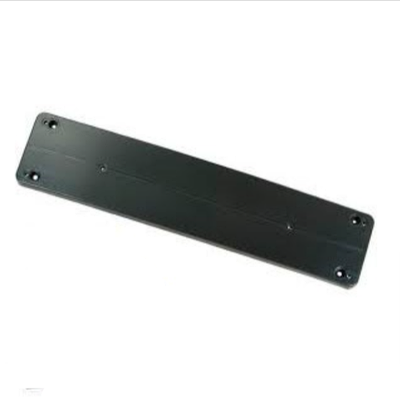Trump's Trade Policies And Their Impact On European Relations

Table of Contents
Steel and Aluminum Tariffs: A Blow to Transatlantic Trade
Trump's imposition of tariffs on steel and aluminum imports, justified on national security grounds, dealt a severe blow to transatlantic trade relations. This protectionist measure, implemented in 2018, ignited a trade war with significant repercussions for both sides of the Atlantic.
Justification and Implementation:
The Trump administration argued that these tariffs were necessary to protect the US steel and aluminum industries from what it perceived as unfair competition and a threat to national security. The tariffs, initially set at 25% for steel and 10% for aluminum, were applied to numerous countries, including key European partners.
- Tariff Percentages: 25% on steel, 10% on aluminum.
- Affected European Countries: The tariffs impacted all EU member states, leading to widespread criticism.
- Immediate EU Reactions: The EU swiftly condemned the tariffs, arguing they violated WTO rules and threatened transatlantic trade. Retaliatory measures were quickly announced.
Economic Repercussions for Europe:
These tariffs had a demonstrably negative economic impact on Europe's steel and aluminum industries. European producers faced reduced market access to the US, leading to job losses, decreased production, and increased prices for downstream manufacturers.
- Job Losses: Estimates of job losses varied, but several European countries reported significant reductions in employment within the affected sectors.
- Increased Prices: European manufacturers using steel and aluminum saw increased input costs, leading to higher prices for their products and reduced competitiveness.
- Impact on Specific Sectors: Industries heavily reliant on steel and aluminum, such as automotive manufacturing and construction, were particularly affected.
Retaliatory Measures from the EU:
In response to Trump's tariffs, the EU imposed its own retaliatory tariffs on a range of US goods, escalating the trade conflict. These tariffs targeted iconic American products, aiming to inflict economic pain and pressure the US to reconsider its policy.
- Examples of US Goods Targeted: The EU's retaliatory tariffs affected a variety of goods, including agricultural products, motorcycles, and denim.
- Value of Retaliatory Tariffs: The value of the EU's retaliatory tariffs was substantial, representing a significant challenge to US exporters.
- Impact on US Businesses: US businesses exporting goods to the EU faced reduced sales and increased costs due to the retaliatory tariffs.
The Transatlantic Trade and Investment Partnership (TTIP): A Stalled Negotiation
The Transatlantic Trade and Investment Partnership (TTIP), a proposed trade agreement between the US and the EU, was a major casualty of Trump's "America First" agenda. While negotiations had been ongoing for years, the Trump administration effectively killed the deal, highlighting the shift away from multilateral trade agreements.
TTIP's Potential Benefits and Drawbacks:
Before its demise, TTIP promised significant potential benefits, but also generated considerable controversy. Supporters pointed to increased trade, job creation, and regulatory harmonization as key advantages. Opponents raised concerns about corporate power, environmental regulations, and the potential loss of national sovereignty.
- Arguments for TTIP: Increased trade, job creation, regulatory harmonization, economic growth.
- Arguments against TTIP: Concerns about corporate power, environmental regulations, potential loss of national sovereignty, and impact on smaller businesses.
Trump Administration's Stance on TTIP:
The Trump administration's rejection of TTIP was unequivocal. Reasons cited for abandoning negotiations included a perceived lack of benefits for the US, strong populist opposition, and a preference for bilateral trade deals. This decision reflected a broader shift away from multilateralism and a focus on negotiating individual agreements.
- Reasons for Abandoning TTIP: Perceived lack of benefits for the US, populist opposition, focus on bilateral deals, and a general distrust of multilateral trade agreements.
Consequences of TTIP's Failure:
The failure of TTIP had significant consequences for both the US and the EU. It represented a lost opportunity for significant economic growth and deeper transatlantic integration. The stalled negotiations also hindered regulatory cooperation and weakened the overall transatlantic relationship.
- Lost Economic Opportunities: Estimates of potential economic gains from TTIP were substantial, representing a significant missed opportunity.
- Impact on Regulatory Cooperation: The stalled negotiations hampered efforts to harmonize regulations on both sides of the Atlantic.
- Effect on the Overall Transatlantic Relationship: The abandonment of TTIP significantly damaged trust and cooperation between the US and the EU.
Trade Disputes Beyond Steel and Aluminum:
Trump's trade policies extended beyond steel and aluminum tariffs, creating tensions across various sectors.
Boeing-Airbus Subsidy Dispute:
The long-standing trade dispute between Boeing and Airbus, involving allegations of government subsidies, was further exacerbated by Trump's administration. While this dispute pre-dated Trump's presidency, his administration's actions escalated the conflict.
- Background of the Dispute: Decades-long dispute over government subsidies provided to both aircraft manufacturers.
- Role of WTO Rulings: WTO rulings against both Boeing and Airbus added complexity to the dispute.
- Impact on Aerospace Industries: The dispute negatively impacted the aerospace industries on both sides of the Atlantic.
Agricultural Trade Tensions:
Trump's trade policies also created significant tensions in the agricultural sector. Tariffs and trade disputes affected agricultural exports from Europe to the US, impacting European farmers and food producers.
- Examples of Specific Agricultural Products Affected: Specific agricultural products, including cheese and wine, faced significant tariffs.
- Impact on Trade Volumes: Trade volumes of several agricultural products decreased significantly.
- Implications for Food Security: Disruptions to agricultural trade raised concerns about food security in both the US and Europe.
Digital Trade and Data Privacy:
The tension between the US and the EU also extended to the digital realm, with significant clashes over data privacy and digital trade. Differences in regulatory approaches, particularly regarding data protection, created further friction.
- Concerns Regarding Data Protection: The EU's stricter data protection regulations (GDPR) contrasted sharply with US practices, causing concern and disputes.
- Differences in Regulatory Approaches: The divergence in regulatory approaches hindered the development of a common transatlantic digital market.
- Implications for Future Trade Agreements: These differences posed challenges for future trade negotiations and cross-border data flows.
Conclusion:
Trump's trade policies significantly strained US-European relations. The imposition of tariffs, the abandonment of TTIP, and various other trade disputes created economic uncertainty and damaged transatlantic trust. Understanding the full impact of these policies remains crucial, with further research necessary to fully grasp the long-term consequences of this period of trade disruption. To delve deeper into the complexities of Trump's trade policies and Europe, continue your research by exploring reputable academic sources and government reports. Analyzing the long-term effects on trade flows, investment, and political cooperation will provide a clearer picture of the legacy of this period and inform future transatlantic relations.

Featured Posts
-
 Exploring The Career Of Melanie Thierry A Comprehensive Overview
May 26, 2025
Exploring The Career Of Melanie Thierry A Comprehensive Overview
May 26, 2025 -
 Thierry Ardisson 50 Personnes Le Recit De Ses Experiences Nocturnes
May 26, 2025
Thierry Ardisson 50 Personnes Le Recit De Ses Experiences Nocturnes
May 26, 2025 -
 Link Nonton Moto Gp Argentina 2025 Siaran Langsung Balapan Dini Hari
May 26, 2025
Link Nonton Moto Gp Argentina 2025 Siaran Langsung Balapan Dini Hari
May 26, 2025 -
 Yubileyniy Podium Mercedes 300 Y Blagodarya Rasselu 153 Khemiltona
May 26, 2025
Yubileyniy Podium Mercedes 300 Y Blagodarya Rasselu 153 Khemiltona
May 26, 2025 -
 Hamiltons Role In Shaping New Formula 1 Rules
May 26, 2025
Hamiltons Role In Shaping New Formula 1 Rules
May 26, 2025
